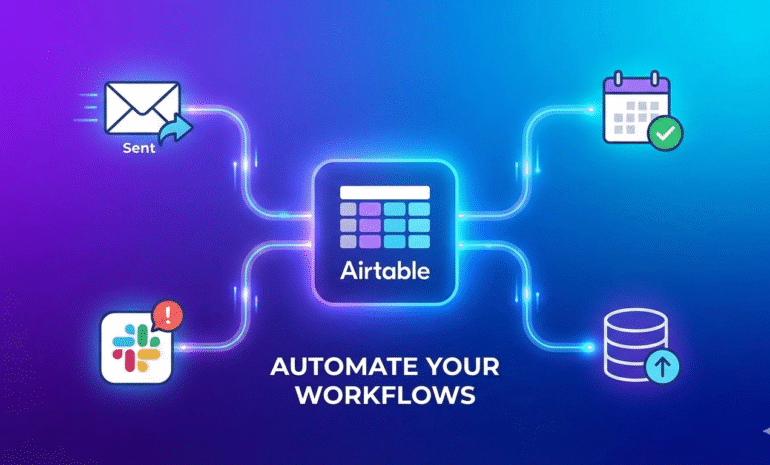When it comes to cloud computing, two of the most popular platforms that come to mind are AWS (Amazon Web Services) and DigitalOcean. Both have made significant marks in the tech world, offering robust services and cloud infrastructure solutions. But how do you choose between them? In this blog, we will compare AWS vs DigitalOcean to help you make an informed decision based on your needs in 2025.

What is AWS?
Amazon Web Services (AWS) is one of the largest and most comprehensive cloud computing platforms in the world. Launched by Amazon in 2006, AWS offers over 200 fully featured services, including computing power, storage, networking, databases, analytics, machine learning, and more. AWS serves a broad range of customers, from startups to large enterprises, making it a go-to choice for businesses looking for scalability and extensive features.
What is DigitalOcean?
DigitalOcean, founded in 2011, is a cloud service provider that focuses on simplicity and scalability for developers. Known for its user-friendly interface and affordable pricing, DigitalOcean offers solutions like virtual private servers (Droplets), managed Kubernetes, object storage (Spaces), and databases. While it doesn’t have the same extensive feature set as AWS, DigitalOcean’s streamlined services make it a popular choice for small to medium-sized businesses and developers who want a straightforward cloud solution.
Key Differences Between AWS and DigitalOcean
- Pricing
- AWS: AWS offers a pay-as-you-go pricing model, but it can be complex due to the multitude of services and configurations. The pricing varies based on usage, so while it’s cost-efficient for large enterprises, it can become expensive for smaller businesses or startups that don’t need all the advanced features.
- DigitalOcean: DigitalOcean’s pricing is much more straightforward and transparent. They offer affordable pricing plans with predictable monthly costs, starting as low as $5 per month. This makes DigitalOcean a great option for developers and small businesses looking for simplicity and cost-effectiveness.
- Ease of Use
- AWS: Due to its vast array of services, AWS can be overwhelming for beginners. The learning curve is steep, and managing resources may require technical expertise. However, AWS offers extensive documentation, tutorials, and support to assist users in navigating its platform.
- DigitalOcean: One of DigitalOcean’s main selling points is its simplicity. The user interface is easy to navigate, making it ideal for developers who want to quickly deploy and manage applications without a steep learning curve. Its intuitive dashboard is a great advantage for those just starting with cloud computing.
- Scalability
- AWS: AWS is renowned for its scalability. It can handle workloads of all sizes, from small applications to large enterprise-level infrastructures. AWS also offers auto-scaling features that allow businesses to adjust resources dynamically based on demand.
- DigitalOcean: While DigitalOcean offers scalable services, it is not as robust as AWS in terms of handling large-scale enterprise needs. However, for small to medium-sized projects, DigitalOcean offers sufficient scalability, especially with its Kubernetes-based solutions.
- Performance
- AWS: AWS is known for its performance and reliability. Its data centers are spread across the globe, ensuring low latency and high availability for users. With a variety of instance types, AWS allows businesses to choose configurations based on their specific workload requirements.
- DigitalOcean: DigitalOcean provides excellent performance for small to medium-sized applications. Its Droplets (virtual private servers) offer reliable and consistent performance. However, for larger, more complex workloads, AWS may have the edge in terms of power and performance.
- Security
- AWS: AWS has built a strong reputation for security with its comprehensive set of security tools, including identity and access management (IAM), encryption, and compliance certifications. AWS is trusted by large enterprises for mission-critical applications.
- DigitalOcean: DigitalOcean also takes security seriously with features like private networking, automatic backups, and firewalls. While it may not have the same breadth of security features as AWS, DigitalOcean offers sufficient protection for most small to medium-sized applications.
AWS vs DigitalOcean: Which One Should You Choose?
Choosing between AWS and DigitalOcean depends on your specific needs and the size of your project. If you are a large enterprise requiring a diverse range of services, extensive scalability, and high-performance infrastructure, AWS is the better option. Its vast ecosystem of services makes it a great choice for businesses with complex requirements.
On the other hand, if you are a developer, startup, or small business looking for an affordable, easy-to-use, and scalable cloud platform, DigitalOcean could be the right fit. Its simple pricing model and ease of use make it perfect for quick deployment without getting bogged down by complexity.
Frequently Asked Questions (FAQ)
- What are the main differences between AWS and DigitalOcean?
- The main differences include pricing (AWS is more complex and can be expensive, while DigitalOcean is more affordable and transparent), ease of use (DigitalOcean is simpler for beginners), scalability (AWS is more scalable for large enterprises), and performance (AWS is more powerful for large workloads).
- Which is more suitable for beginners, AWS or DigitalOcean?
- DigitalOcean is more suitable for beginners due to its simpler interface, transparent pricing, and easy-to-deploy services.
- Which platform is more scalable, AWS or DigitalOcean?
- AWS is more scalable and can handle workloads of any size, making it ideal for enterprises with complex needs.
- Is DigitalOcean good for small businesses?
- Yes, DigitalOcean is perfect for small businesses, startups, and developers looking for an affordable and easy-to-use cloud service.
- Can DigitalOcean compete with AWS for large enterprises?
- While DigitalOcean is a strong choice for small to medium businesses, AWS is the preferred platform for large enterprises due to its extensive services, global reach, and scalability.
- Which platform is better for hosting websites?
- Both AWS and DigitalOcean can host websites, but DigitalOcean is generally easier to use for smaller websites or blogs, while AWS is better suited for high-traffic websites with complex needs.
Conclusion
In the battle of AWS vs DigitalOcean, the right choice depends on your specific needs, budget, and technical expertise. AWS offers an extensive array of features, performance, and scalability, making it ideal for large enterprises. However, DigitalOcean’s simplicity, transparency, and affordability make it a perfect option for developers and small businesses. Evaluate your project’s size and requirements to choose the best platform for you in 2025.


